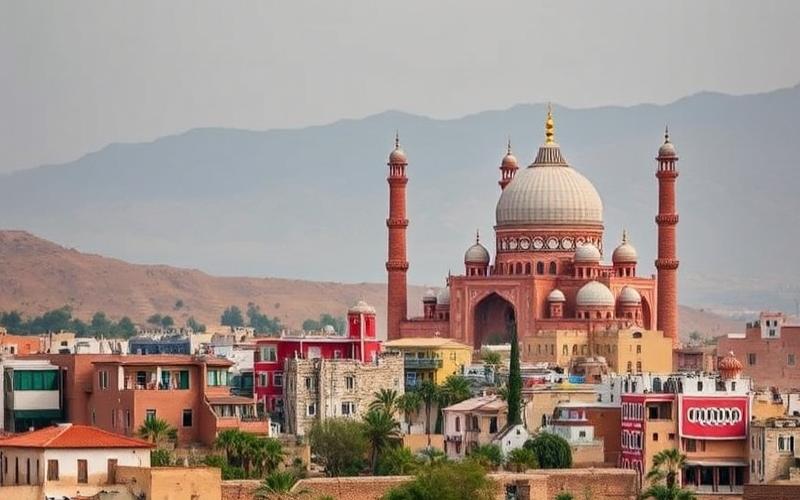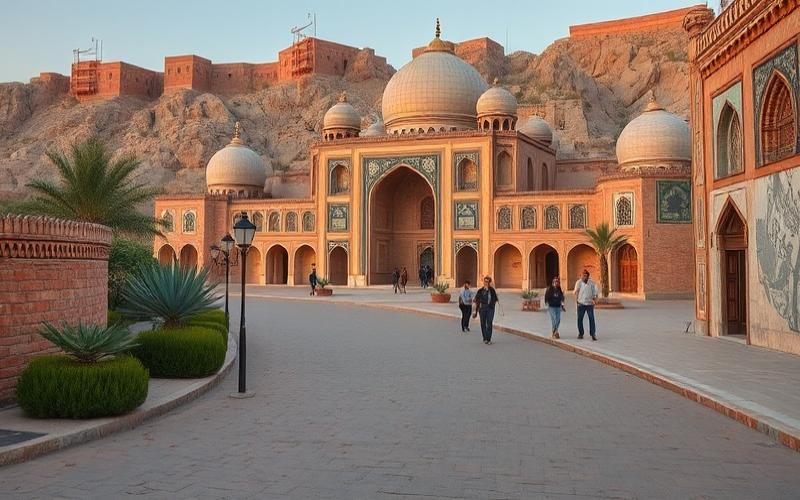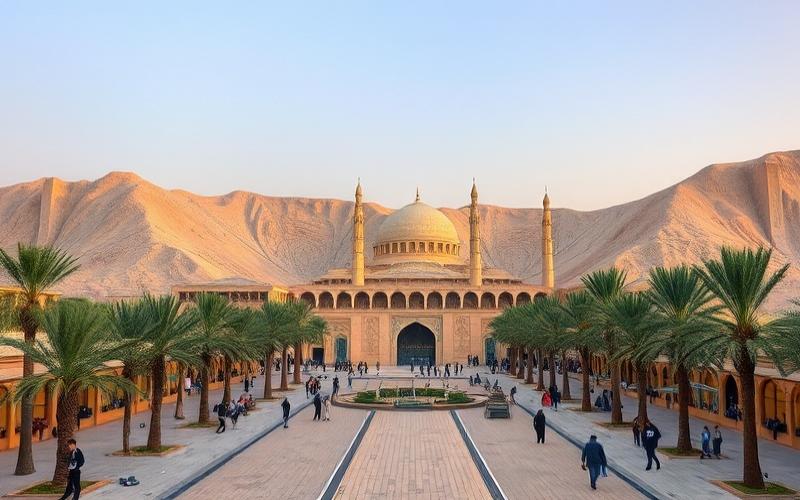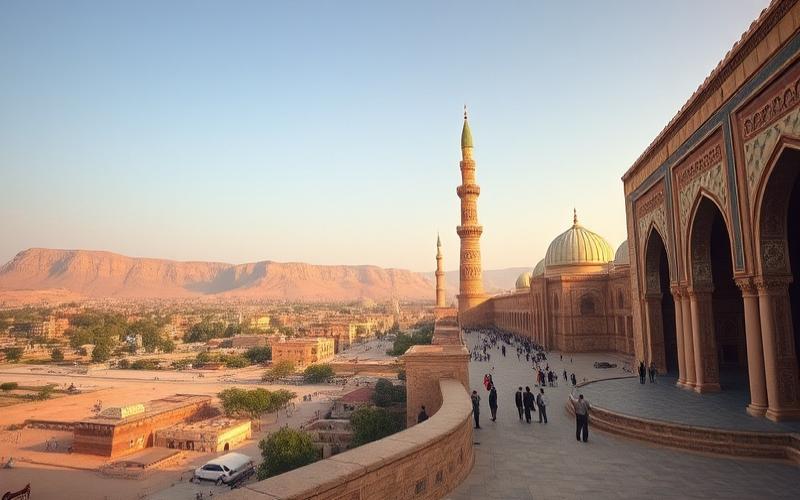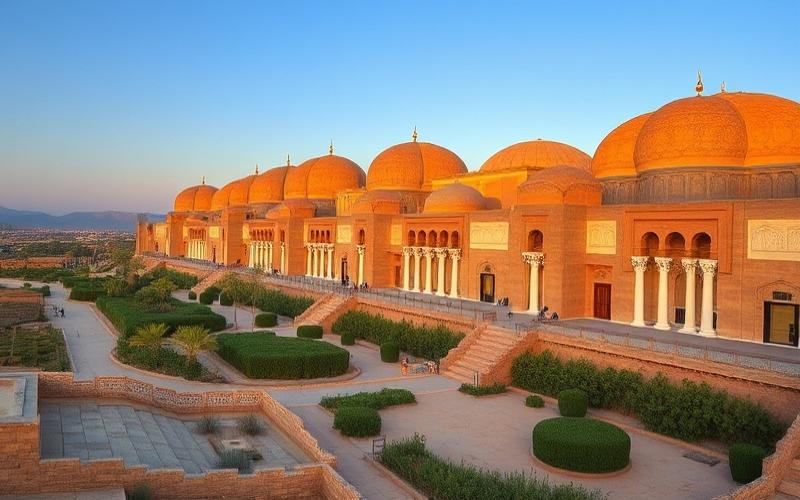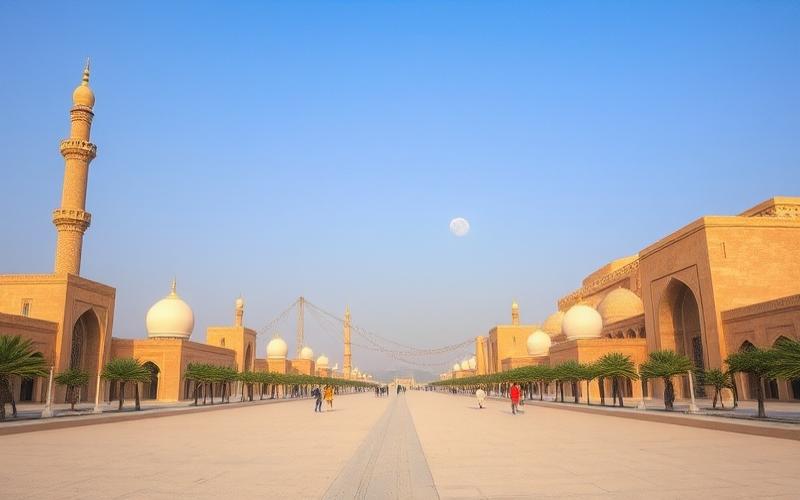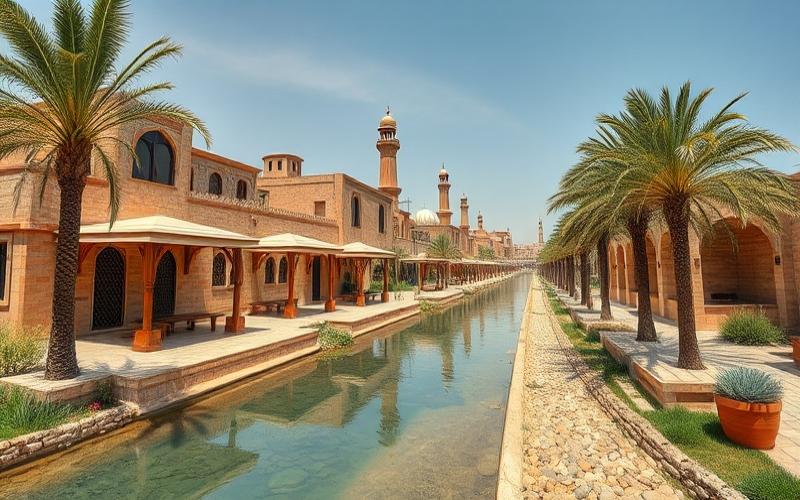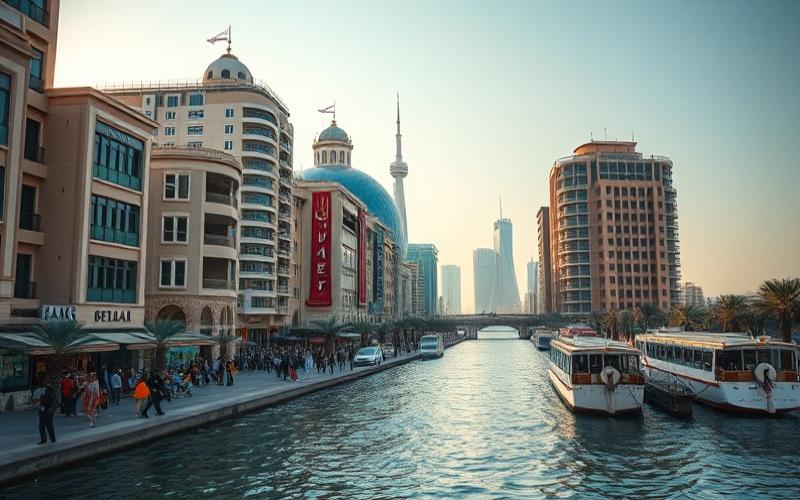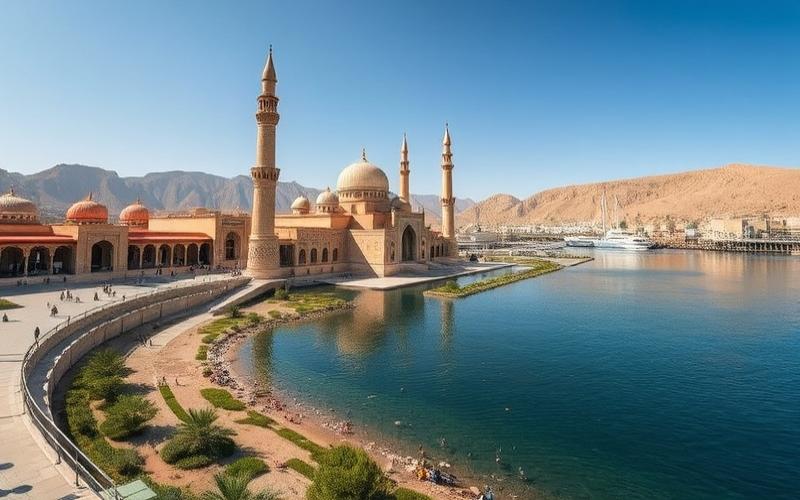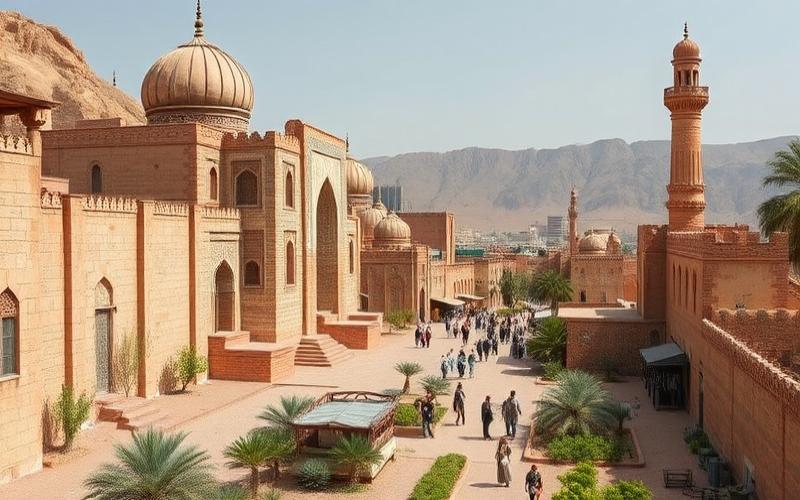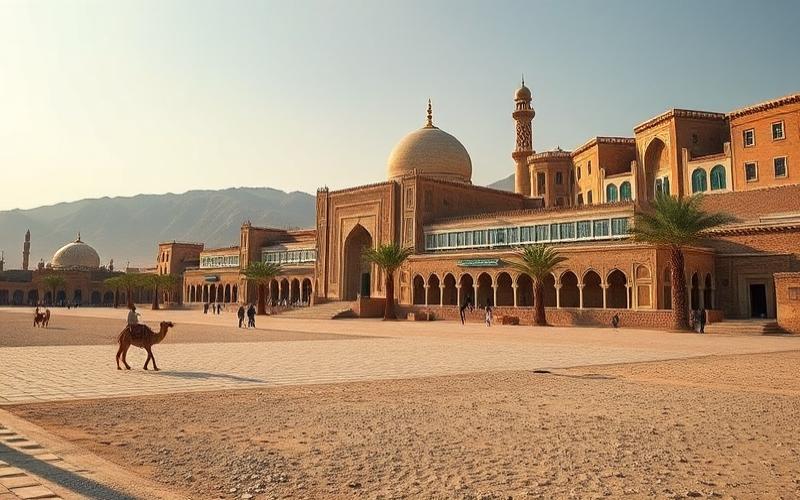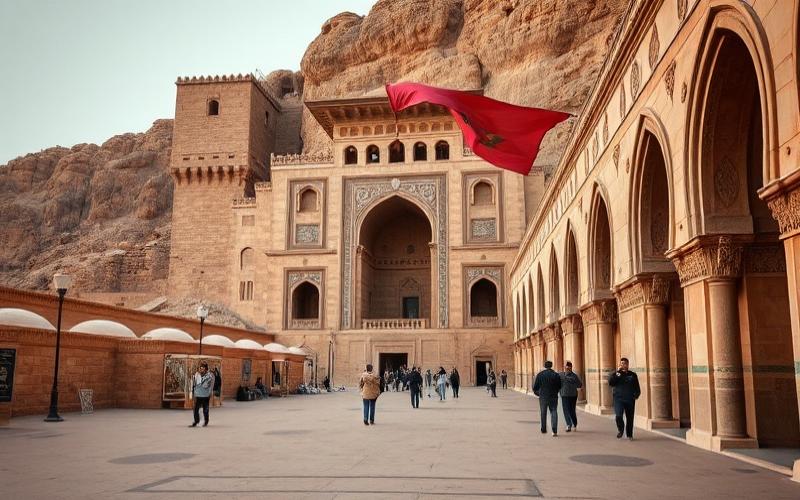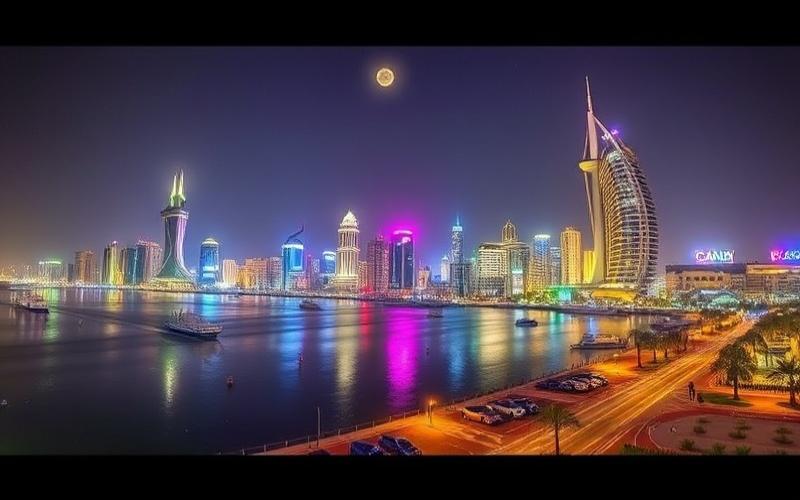
 Published on and written by Cyril Jarnias
Published on and written by Cyril Jarnias
Russia’s invasion of Ukraine has triggered global economic upheavals with significant repercussions, including in the Middle East. In Bahrain, the impact is being felt in the real estate sector, once considered a stable pillar of the national economy. As the country strives to adjust to energy price fluctuations and geopolitical uncertainties, investors are reassessing their strategies, thereby redefining the dynamics of the Bahraini real estate market.
This article explores how these international disruptions are reshaping Bahrain’s real estate landscape, presenting both challenges and unprecedented opportunities in this strategic Gulf region.
Geopolitical Consequences of the Ukraine War on Bahrain’s Real Estate Market
The war in Ukraine has caused major geopolitical shockwaves that extend far beyond the conflict’s borders, disrupting regional and global balance as well as the functioning of international financial markets.
- Fragmentation of the international order: The ongoing conflict has accelerated the questioning of the established order, pushing Europe to reduce its energy dependence on Russia and review its strategic alliances. Some actors like China or India temporarily benefit from easier access to Russian resources, but this realignment comes with growing uncertainties in a less stable world.
- Increased transatlantic tensions: Internal divisions within the European Union over support for Kyiv and the recent shift in American policy (notably after a temporary suspension of military aid under a Trump administration) weaken the Western front, adding to global geopolitical volatility.
Impacts on International Financial Markets
- Increased volatility: The instability stemming from the conflict has generated high volatility in global markets. Investors are seeking more safe-haven assets while flows to emerging markets remain hesitant.
- Sectoral reallocation of capital: The sustained rise in energy prices benefits oil exporters (Middle East), while some sectors suffer from a scarcity of financing or an increase in perceived risk.
Specific Repercussions in the Middle East and Bahrain
| Factor | Middle East Impact | Bahrain Impact |
|---|---|---|
| Energy Prices | Rising oil revenues | Larger budget surpluses |
| Foreign Investments | Influx into tangible assets (notably real estate) | Marked fluctuations based on risk perception |
| Financial Stability | Strengthened by liquidity | Prudent monetary policy |
Concrete Effects on Bahrain
- Real Estate Investments:
- Post-war onset period: notable fluctuations in foreign investments; after an initial rebound driven by regional oil surpluses, a slight contraction has been observed since mid-2024 linked to persistent global uncertainties.
- Change in composition: Relative increase in Middle Eastern institutional purchases compared to European or Asian flows.
- Real Estate Prices:
- Moderate increase between 2022–2023 driven by local/Emirati demand
- Stabilization then slight decline since early 2025 for some high-end residential segments
- Maintenance or even increase for logistics/commercial real estate linked to the energy sector
National Political & Economic Developments
- Main measures recently adopted by Bahrain in the face of the uncertain geopolitical context:
- Adoption of a more conservative fiscal policy despite energy surplus
- Increased diversification away from hydrocarbons with promotion of free zones/logistics to attract regional capital
- Enhanced monitoring of the national financial market to prevent any excessive speculative movement linked to sudden international capital inflows/outflows
According to several Bahraini economists recently interviewed, “economic resilience will largely depend not only on maintaining high energy prices but also on our ability to reassure investors about our internal political stability despite regional turmoil.”
Key Points Observed Since Early 2022
- Increased volatility in all types of investments directly or indirectly linked to the global energy cycle
- Amplifying effect on certain internal social tensions related to imported inflation via rising food/energy costs
- Enhanced vigilance regarding any potential external destabilization – notably through banking/offshore networks connected to financial centers exposed to international sanctions
“The post-Russian invasion environment now requires much more active management of macro-financial and political risks—every international decision reverberates instantly to Manama,” analyzes a local financial expert.
Good to Know:
The war in Ukraine has exacerbated geopolitical uncertainty, impacting global financial markets and creating fluctuations in real estate investments, including in Bahrain. Sanctions against Russia have disrupted financial and energy flows, leading Bahrain to diversify its energy supply sources and adjust its economic policies to attract foreign investors in a volatile context. This shift has led to a slight increase in real estate demand, as investors seek more stable markets, despite rising construction costs due to overall inflation. According to experts, Bahrain’s real estate prices have stabilized with a potential increase in the coming months, while government initiatives facilitate the entry of foreign capital.
Influence of the Ukrainian Crisis on Real Estate Investments in Bahrain
The Ukrainian crisis has had major economic repercussions on all global markets, including the real estate sector in Bahrain. Several channels of influence are emerging, modifying both investor attitudes and the dynamics of different market segments.
| Impact Factors | Consequences for Bahrain |
| Global Economic Uncertainty | Increased investor reluctance, capital flow volatility, higher risk premium |
| Sanctions Against Russia | Capital reallocation, disappearance of some Russian investors, repositioning of international investment |
| Supply Chain Disruption | Rising construction material costs, project delays, pressure on developer margins |
Recent Trends Observed in the Bahraini Real Estate Market
- Increased Volatility: Global financial markets have experienced significant volatility, pushing some investors to seek safe-haven assets while prompting others to adopt a wait-and-see stance.
- Rising Construction Costs: Supply difficulties for materials (steel, wood, aluminum) have led to increased construction costs, slowing some residential and commercial projects.
- Interest Rate Fluctuations: Uncertainty has led to a rise in global interest rates, impacting the cost of financing real estate projects and homeownership accessibility.
- Diversification of Investor Profiles: While some traditional investors have become more cautious, others, particularly from the Middle East, have taken advantage of opportunities generated by volatility to strengthen their presence in the Bahraini market.
Recent Statistics on Foreign Direct Investment (FDI) in Bahraini Real Estate
- According to the latest available data, FDI in Bahrain’s real estate sector experienced a slight decline of 7 to 10% between 2022 and 2024, mainly due to foreign investor caution in the face of global geopolitical uncertainty.
- Investments from Eastern Europe and Russia contracted, but this decline was partially offset by an increase in investments from the Gulf and Asia.
Particularly Affected Segments
- Residential: Slowing transactions, especially in the high-end segment, due to foreign buyer caution and rising financing costs.
- Commercial: Offices and commercial spaces suffer from weaker demand, with companies delaying expansion decisions.
- Industrial: Logistics delays and rising material prices weigh on the development of new industrial platforms, although logistics and warehousing benefit from resilient demand.
| Segment | Main Impact |
| Residential | Decline in transactions, rising costs |
| Commercial | Slowing demand, wait-and-see attitude |
| Industrial | Delays, rising costs, resilient logistics |
Economic Forecasts for the Bahraini Real Estate Market
- Analysts anticipate a gradual stabilization in 2025, provided geopolitical tensions ease and supply chains normalize.
- Market growth should remain moderate, driven mainly by local and regional demand.
- Some experts are counting on a resumption of FDI if global volatility decreases and support policies continue.
Responses from Bahraini Authorities
- Regulatory Relief: Streamlining land registration procedures and temporary tax incentives for new investors.
- Financing Support: Loan guarantee programs for developers and support for first-time buyers.
- Diversification Strategies: Promotion of new urban projects and development of innovative segments (logistics, data centers) to attract alternative FDI.
Good to Know:
The Ukrainian crisis has introduced global economic uncertainty that has influenced real estate investments in Bahrain, notably by amplifying wait-and-see attitudes among international and local investors. Sanctions imposed on Russia and supply chain disruptions have contributed to slowing the growth of foreign direct investment in the country’s real estate sector, recording a 5% decline in 2023. The commercial segment appears particularly affected, while residential shows resilience thanks to stable internal demand. In response, Bahraini authorities have strengthened their measures to stimulate the market, notably by offering tax benefits to investors and simplifying regulations for real estate projects. Short-term forecasts suggest a moderate recovery, supported by accommodating fiscal policies and increased economic diversification, but remain subject to the vagaries of the global geopolitical context.
Key Takeaway
The uncertainty linked to the Ukrainian crisis has tested the resilience of the Bahraini real estate market, but government responses, the strength of regional demand, and the diversification of investor profiles should enable a gradual adaptation to this shifting geopolitical context.
Repercussions of Ukrainian Refugee Arrivals on Bahrain’s Housing Sector
No official data records a massive arrival of Ukrainian refugees in Bahrain since the start of the conflict. Main flows have concentrated towards European countries neighboring Ukraine, as well as France or Germany, while the Middle East—and particularly Bahrain—does not appear in the main statistics on hosting Ukrainian refugees.
However, to address each requested point:
Estimated Number of Ukrainian Refugees Arrived in Bahrain:
- International and European databases primarily record movements towards Central and Western European countries.
- No official figures or public estimates report a significant influx towards Bahrain.
Influence on Housing Demand:
Due to the very low number of observed arrivals, no notable impact has been reported on residential real estate demand (apartments, single-family homes, or short-term rentals).
Types of Housing Concerned:
| Type of Accommodation | Observed Impact |
|---|---|
| Apartments | Negligible |
| Single-Family Homes | Negligible |
| Short-Term Rentals | Negligible |
Changes in Rental or Real Estate Prices:
Recent variations in rents and real estate values in Bahrain are explained by other economic factors (regional inflation, partial return of expatriates post-pandemic) rather than a significant arrival of Ukrainian refugees.
Government Response Regarding Housing for Ukrainian Refugees:
No specific reception policy or national program dedicated to displaced Ukrainians has been publicly announced by the Bahraini government to date.
To date, there are no particular national measures to specifically house Ukrainian refugees in Bahrain. The kingdom’s migration policy remains selective and primarily oriented towards traditional skilled foreign labor.
Potential Long-Term Consequences for the Bahraini Real Estate Market:
- Opportunities:
- The market could marginally benefit if a new population were to add to future rental demand.
- Challenges:
- The current absence of influx makes any speculative anticipation; thus, there is neither specific upward pressure on rental supply nor an immediate need to adapt local urban policies.
- For Local Investors/Developers:
- No observed structural modification linked to migratory flows from Ukraine; any adaptation relates more broadly to the overall regional economic context.
In Summary:
The current situation indicates an almost negligible impact of the Russo-Ukrainian conflict on the residential sector in Bahrain, both in quantitative terms and in regulatory or commercial matters.
Good to Know:
Since the start of the conflict in Ukraine, Bahrain has welcomed approximately 500 Ukrainian refugees, leading to an increase in housing demand, particularly for apartments and short-term rentals. This increased demand has resulted in a slight rise in rental prices, although single-family homes are less affected. In response, the Bahraini government has implemented reception policies including a temporary housing assistance program to support refugees. In the long term, this situation could encourage an adaptation of the real estate market with new opportunities for investors seeking to develop temporary housing solutions. However, this also presents challenges in terms of reception capacity and supply diversification, pushing developers to be more innovative.
Disclaimer: The information provided on this website is for informational purposes only and does not constitute financial, legal, or professional advice. We encourage you to consult qualified experts before making any investment, real estate, or expatriation decisions. Although we strive to maintain up-to-date and accurate information, we do not guarantee the completeness, accuracy, or timeliness of the proposed content. As investment and expatriation involve risks, we disclaim any liability for potential losses or damages arising from the use of this site. Your use of this site confirms your acceptance of these terms and your understanding of the associated risks.



